
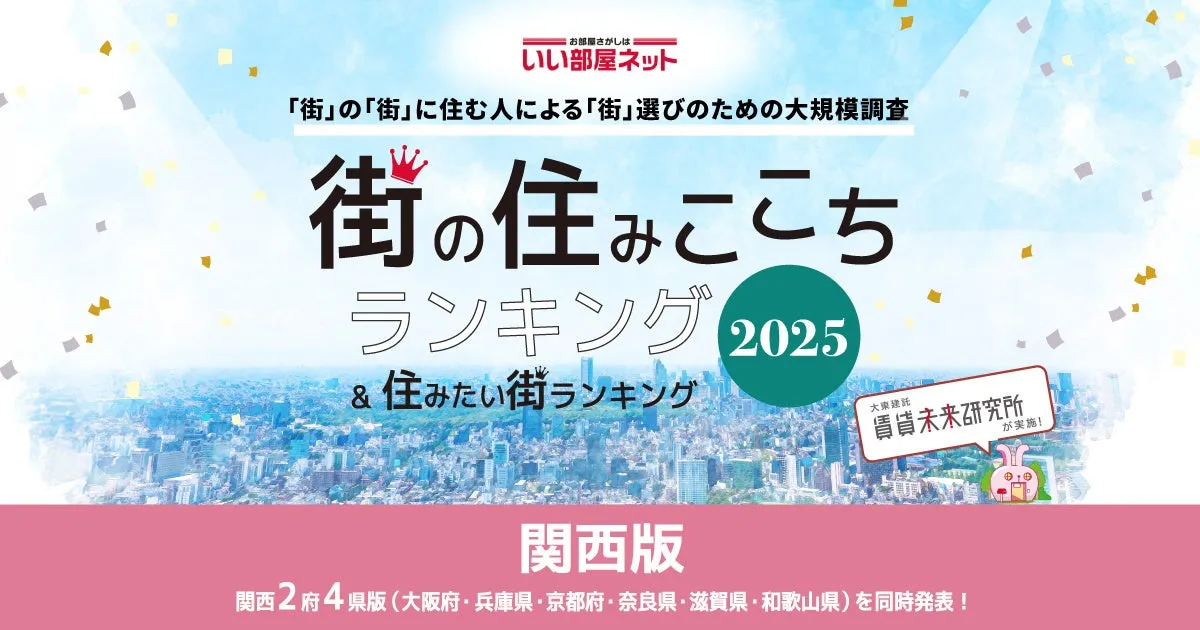
Discover the Comfort of Living in Kyoto: 2025 Rankings Unveiled
The Comfort of Living in Kyoto: Insights from the 2025 Rankings
In the annual survey conducted by Daiko Rent Co., Ltd., led by CEO Kei Takeuchi, the 'Good Room Net Living Satisfaction Ranking 2025' for Kyoto has been unveiled, showcasing where residents feel most satisfied and where they aspire to live. This year's report is one of the largest in history and provides a comprehensive analysis of residential satisfaction across different areas in Kyoto Prefecture.
Key Findings
Top Living Satisfaction Stations
For the second consecutive year, the top spot for station satisfaction goes to Kyoto City Hall Mae located in Nakagyo Ward. This station received an impressive score, placing it in the 70 or above range for satisfaction. It is followed closely by Marutamachi and Kitayama, both in Nakagyo and Sakyo wards respectively. Notably, several stations have made significant improvements from last year's rankings, such as Nagaokakyo and Kuramaguchi, which have risen in rank.
Municipal Living Satisfaction
When it comes to overall municipal satisfaction, Nakagyo Ward also secures the first position for the sixth consecutive year, with Sakyo Ward and Kita Ward trailing behind. This indicates a consistent level of satisfaction among residents in Kyoto’s central wards. The survey also highlights that towns like Oyamazaki have improved their rankings significantly, emphasizing the quality of life in suburban areas.
Desired Living Locations
Residents' aspirations to live in certain areas saw Kyoto City ranked first for six straight years. The second position went to a consolidated list of stations in Umeda, while Kobe Sannomiya held the third spot. Impressively, Nijo in Nakagyo Ward has moved from sixth to fifth position, demonstrating a growing interest in this historically rich area.
Factors of Satisfaction
The rankings considered various factors, including livability, administrative services, and community vibrancy. The highest-rated station, Kyoto City Hall Mae, excelled in factors like Friendliness and Vibrancy, being the only station to achieve a high score in the vibrancy category. Conversely, stations like Umenokoji may have high affordability but ranked lower in overall satisfaction, suggesting that cost is not the sole determinant of residential happiness.
Conclusion
This comprehensive survey, conducted with over 17,000 respondents, provides valuable insights into which areas of Kyoto excel in livability and desirability. It reflects a nuanced understanding of residents' preferences and satisfaction. The findings are critical not just for prospective residents but also for city planners and developers aiming to improve local living environments.
Traveling through Kyoto, it’s clear why many are drawn to live in this historic and culturally rich city, with its blend of modern needs and traditional charm.
To stay updated with further developments and to explore the full report, visit the Good Room Net website. Understanding community needs and enhancing urban living standards remains a collective pursuit for all involved in urban development.
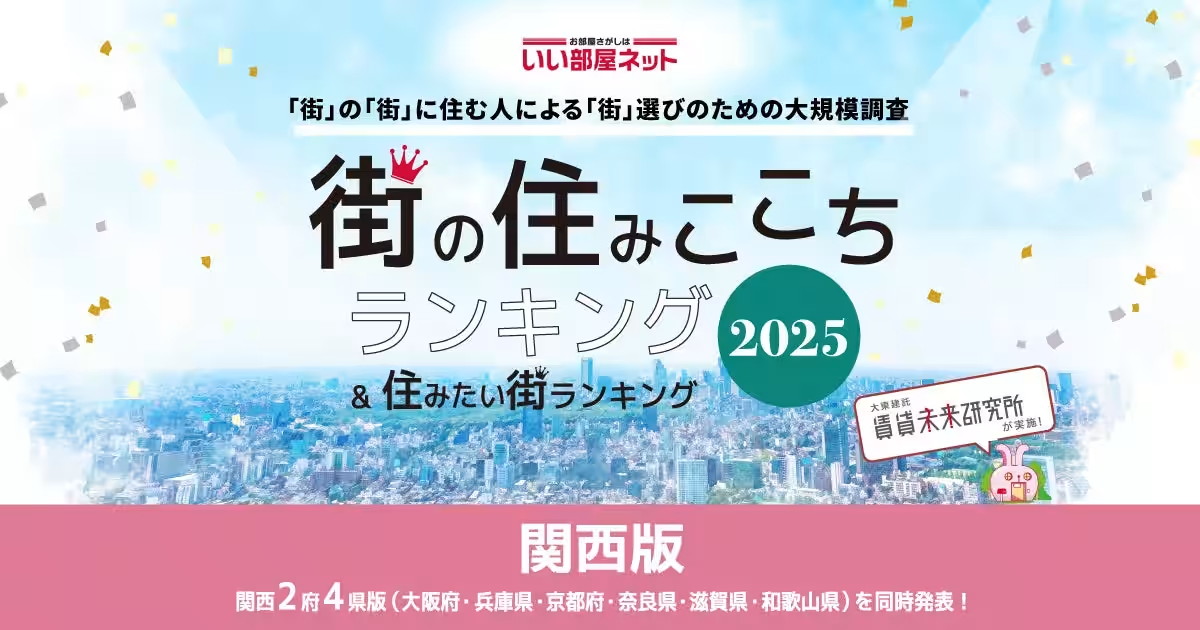

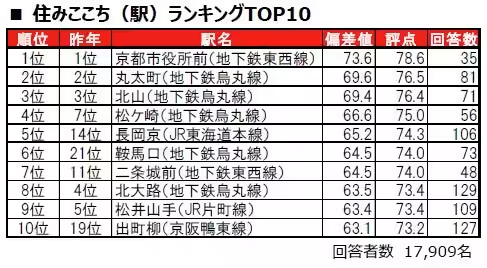
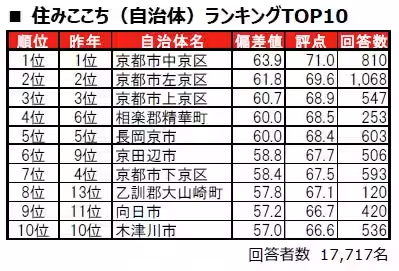
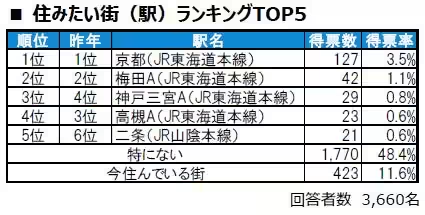
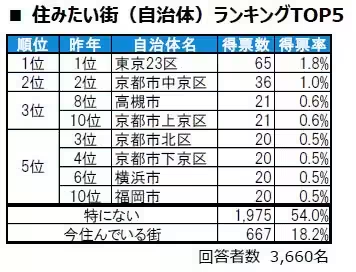
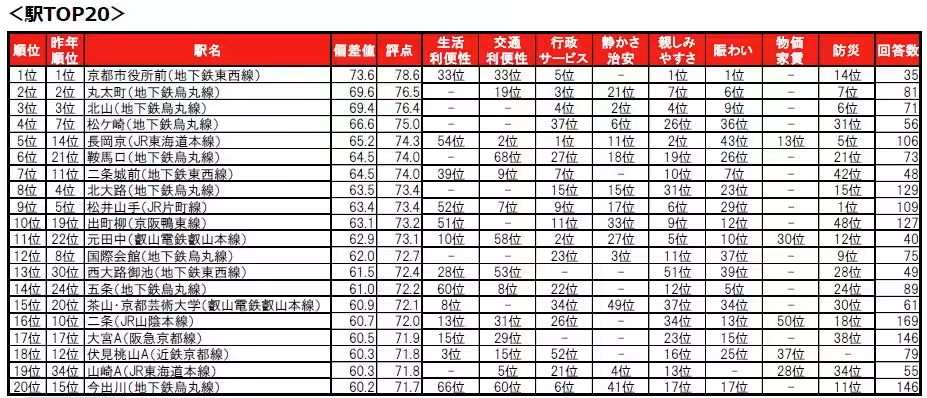
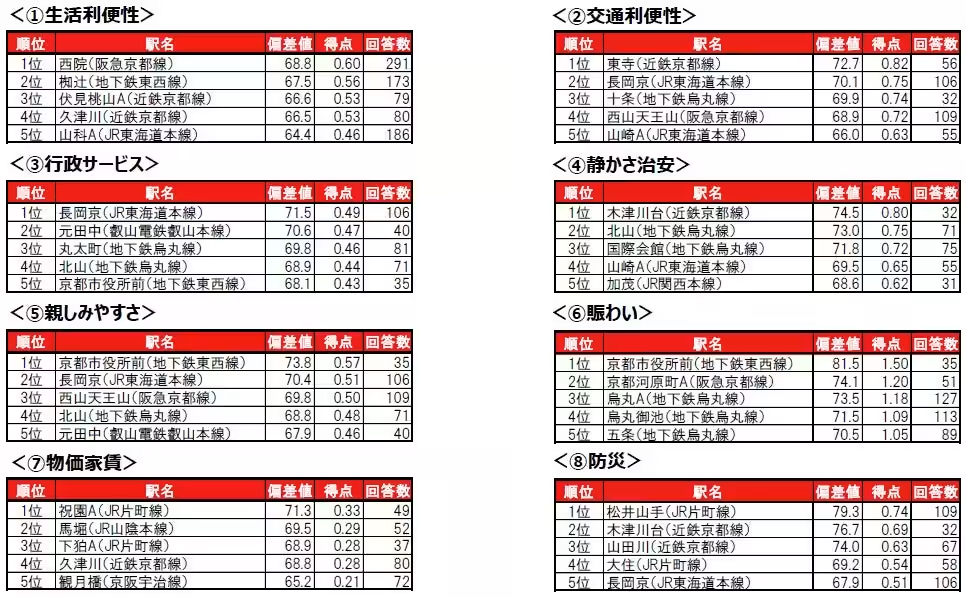
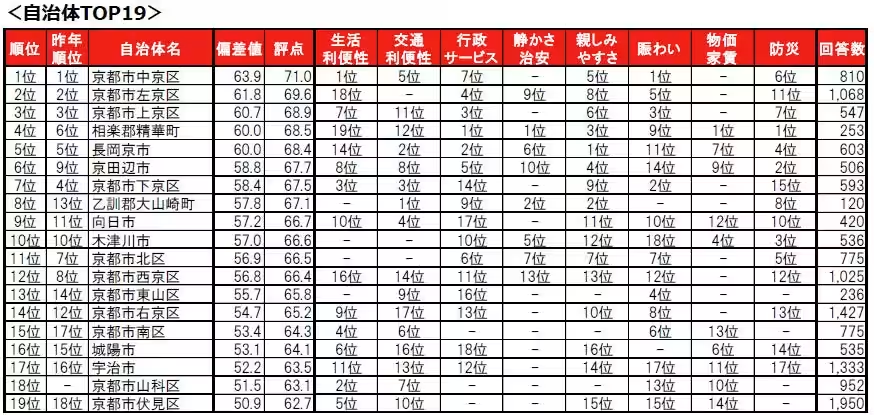
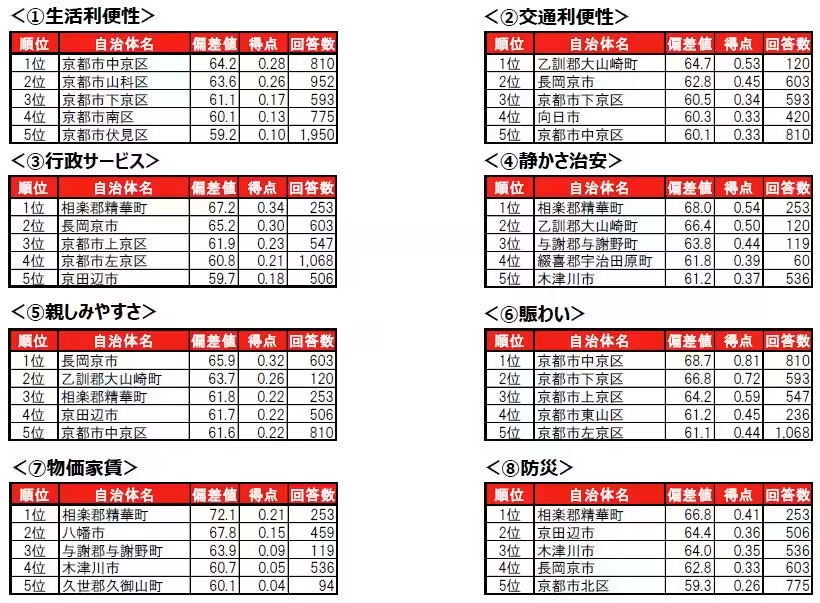
Topics Consumer Products & Retail)










【About Using Articles】
You can freely use the title and article content by linking to the page where the article is posted.
※ Images cannot be used.
【About Links】
Links are free to use.